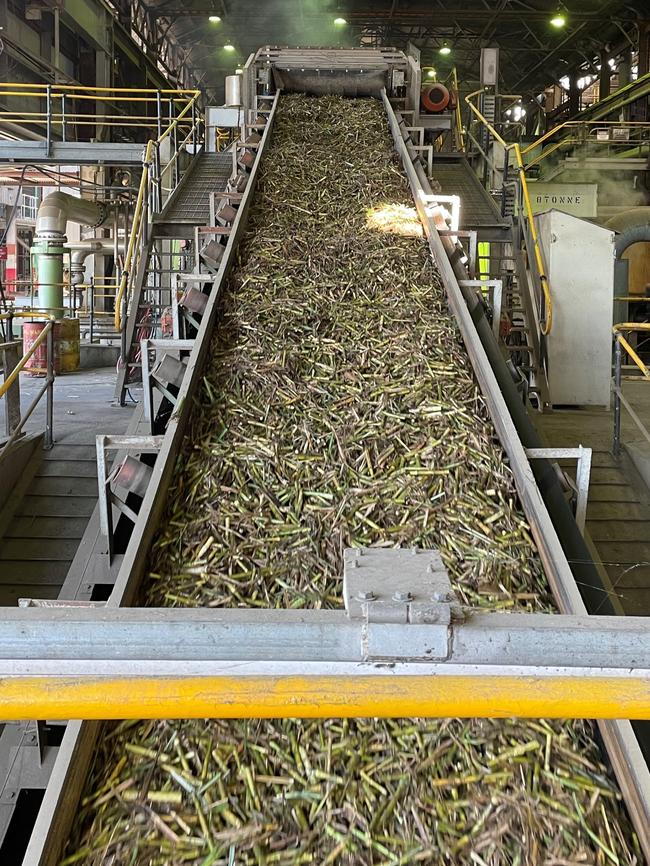Big players in the Queensland sugarcane industry
There are 4300 growers and five key companies shaping the future of the sugarcane industry in Qld. This is what we know of them and their stakeholders:
Bundaberg
Don't miss out on the headlines from Bundaberg. Followed categories will be added to My News.
Despite years of uncertainty in the Qld sugar cane industry, it has remained a crucial part of the state’s economy.
The second largest agricultural export in the state, sugarcane production is worth $2.5 billion to the Australian annual economy with 4000 farms contributing.
In Queensland, it is worth $1.55billion, and as the 21st century moves forward, peak body leaders have commented on the struggles it faces.
Queensland Canegrowers CEO Dan Galligan said sugarcane was on the verge of future-proofing change.
“Our work is showing that Australia as an industry could do very well out of bioenergy, particularly sustainable aviation fuel and bioplastics,” he said.
Canegrowers represents 70 per cent of the state’s growers across 13 offices, with 85 grower-directors sharing their personal position on the industry with the peak body.
Mr Galligan said the roadblocks to turning the sugar cane industry into a diversified and viable industry lay in the demand for renewable energy projects such as solar farms absorbing farmland which could be ideal for bioenergy projects.
“All of those projects across the world are really putting a premium on (sugar cane) fibre, and the industry’s interesting dynamic is the fibre of the cane plant may well become as valuable as the sugar you get out of the cane juice,” he said.
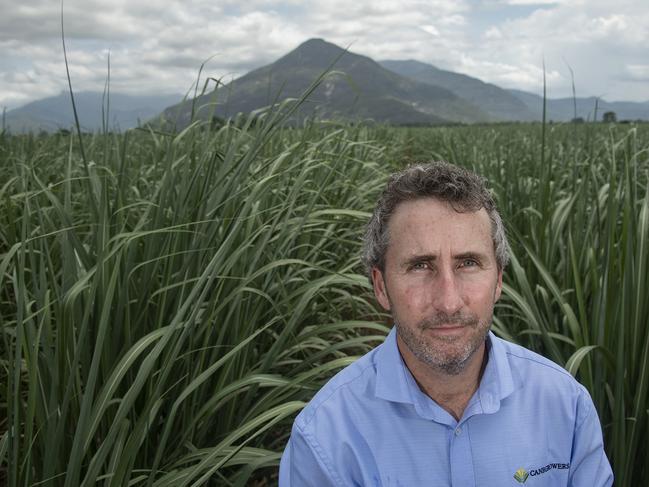
AgForce CEO Michael Guerin mirrored Mr Galligan’s sentiments and said the contrast between the quality of milling technology and cutting edge bio-fuels had drawn farmers away from historically economical sugar production.
“Our 100-year-old mill sector is not keeping up with farmers willing to increase production or innovation. Currently the mill maintenance and breakdowns is causing the crush season to run longer and in some cases, mill supply is not being met,” he said.
“Which means many farmers will miss out on vital profit.”
“The sugar cane farmers are keen to explore new markets, especially bio-circular economies, biofuel refineries in local areas – offering feedstock from sugar cane leaf tops and in return purchasing bioproduct output as biodiesel for on farm production.”
There are five key companies shaping the future of Queensland’s second-largest export. This is what we know of them and their stakeholders.
Wilmar Sugar
As Australia and New Zealand's largest grower of raw and refined sugar products, Wilmar Sugar is the leader of the Queensland sugar industry.
With operations spanning roughly 7100ha across the state, the company is able to produce more than half a million tonnes in sugarcane annually.
The farms are based across North Queensland in the Herbert, Proserpine and Sarina regions with the largest in the Burdekin producing 320,000 tonnes of sugar.
Wilmar Sugar is also the country’s largest sugar miller, operating eight individual mills supported by the state’s third largest rail network with 80 locomotives and 18,000 cane bins.
Alongside their impressive sugar operations, Wilmar Sugar also contributes heavily to the country’s biofuel industry through ethanol, industrial solvents and refrigeration brine.
The company is overseen by a three-man team; Shayne Rutherford (Head of Sugar and Renewables), Bernard Duigan (CEO) and Paul Gregory (COO).
Owned by Wilmar International Limited the company is guided by the Asian agribusiness company which ranked in the top 200 of the Forbes Fortune Global 500 list in 2023.
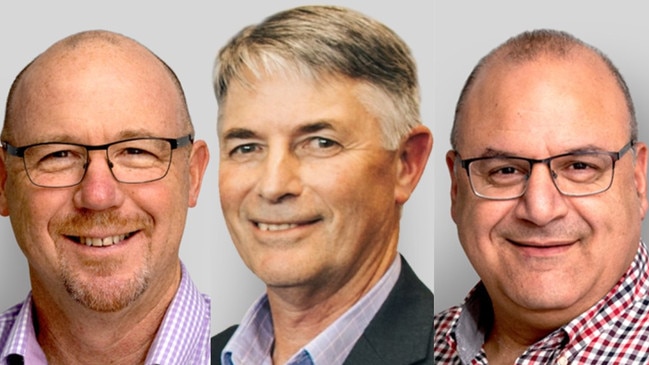
Mackay Sugar
The second largest producer of sugar in the state, Mackay Sugar has an impressive annual turnover of more than $300 million.
With a 140-year history, the company operates three mills in the Mackay region to produce an average of 800,000 tonnes of sugar annually.
The mills are supplied by more than 1200 farms in the region, almost a quarter of the country’s entire industry with a cultivated area spanning more than 70,000ha.
Much like other major sugar producers in the state, Mackay Sugar focuses on a sustainable approach to farming, working with a carbon positive footprint to produce biofuels.
The company is overseen by its chairman and controlling member, director Michael Gerloff, who also serves as the Head of Business Unit Cane Sugar Nordzucker Group and Head of Business Development Nordzucker Group.
In 2019, the German company Nordzucker AG acquired 70 per cent of the issued shares in Mackay Sugar, contributing to the company’s reputation as the second largest sugar processor in Europe.
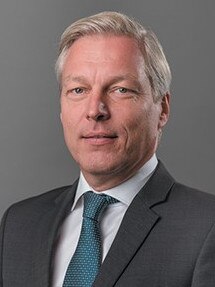
MSF Sugar
Across four mills in Queensland, MSF Sugar produces roughly 650,000 tonnes of sugarcane annually, employing 760 people across 9700ha of farmland.
With a land and water portfolio valued at $170m, MSF Sugar is a key agribusiness spanning much of the state.
From the base of operations at Gordonvale in Far North Queensland, right down to the Fraser Coast in southeast Queensland, the company is also backed by strong investments in renewable energy.
In 2023, it invested $86m in the Tableland Green Energy Power Plant, which converts renewable sugarcane fibre, bagasse into green energy.
The power plant is already producing 24MW of electricity, reportedly enough to power more than 26,000 homes.
The powerhouse company is owned by Thai sugar giant Mitr Phol, the world's fifth largest sugar producer and is overseen by vice chairman of the executive committee of Mitr Phol and director Krisda Monthienvichienchai.
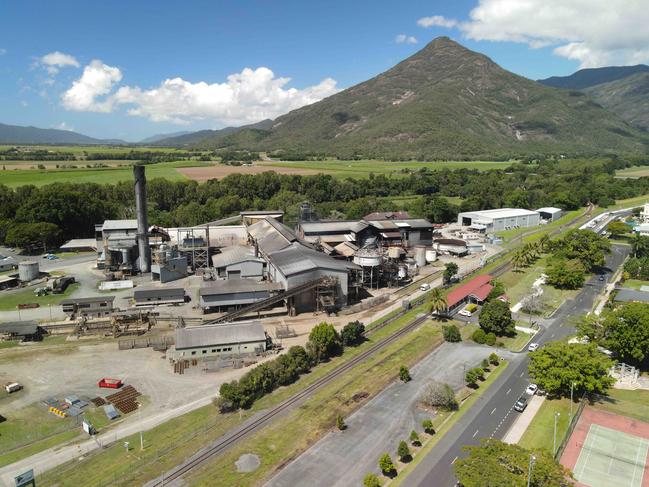
Bundaberg Sugar
As one of the oldest sugar cane producers in Queensland, Bundaberg Sugar has grown to be an icon of the industry.
The private, family owned company was established in 1882 and operates out of Bundaberg, with more than 9000ha of farmland producing roughly 550,000 tonne of sugar cane annually.
The company’s key mill Millaquin Mill crushes more than 1 million tonne of cane each crushing season, harvested from 20,000ha of local farmland.
Unlike other major Queensland sugar producers, Bundaberg Sugar has maintained classical processing value-add industries, including Bundaberg Walkers, one of Australia’s longest established, heavy engineering and foundry enterprises; and Bundaberg Molasses.
Bundaberg Molasses supplied molasses to a range of industrial and rural markets, most notably the famous Bundaberg Rum Distillery which neighbours the Millaquin Mill.
The company is overseen by chief executive officer Guy Basile, who stepped into the role in 2016 as well as serving as the general manager for Refinery Operations and Sales.
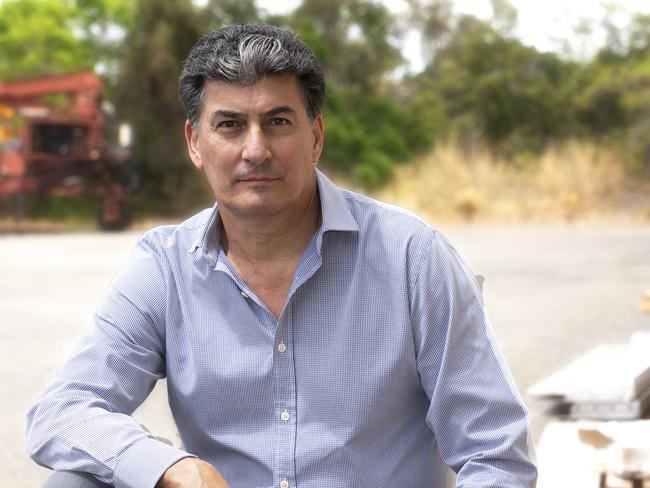
Tully Sugar
Tully Sugar Limited is the company behind the Tully Sugar Mill in the Cassowary Coast Region of Far North Queensland.
One hundred per cent of the sugar processed at the mill, one of the largest in the country, is exported through the Mourilyan Bulk Sugar Terminal and since 2009 the company has averaged an annual production of 277,000 tonne of raw sugar.
The company also oversees more than 200km of rail network to supply to mill with 15 locomotives in the fleet.
Much like other major mills in Far North Queensland, the Tully Mill relies heavily on renewable energy powered by firing three of the mill’s steam boilers with the biomass produced following the extraction of juice from the sugar cane.
So successful is this process, the mill is able to export 10MW of excess renewable energy into the state’s power grid during operation.
The company is a wholly owned subsidiary of COFCO, a Chinese agribusiness company reported to be China’s largest food processor.
Qiang Tang serves as chairman of Tully Sugar Limited alongside his role as CFO of COFCO Sugar Holding Co.
More Coverage
